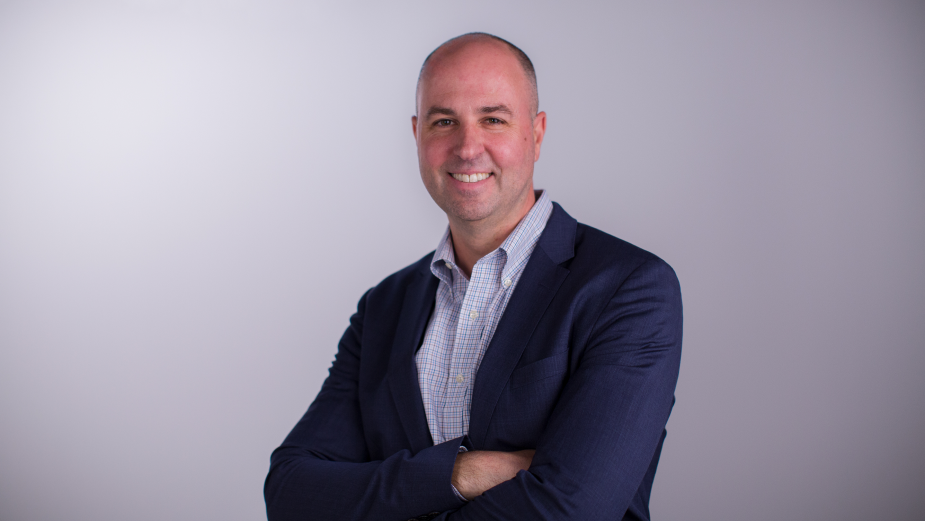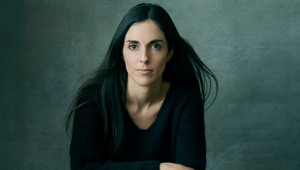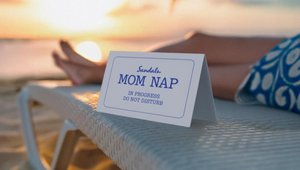
5 Minutes with… Andrew Swinand

Andrew Swinand is the CEO of Publicis Groupe Creative and Production U.S. and CEO of The Leo Burnett Group. He is also the co-founder of Abundant Venture Partners, a Chicago-based incubator dedicated to improving the human condition through investments in healthcare and technology. As a serial entrepreneur, Andrew has been involved in incubating 19 companies, founding nine, and exiting seven. In fact, Andrew became CEO of Leo Burnett when they acquired two companies he founded, which were focused on personalised content and search analytics.
Prior to Abundant, Andrew was president of Starcom Mediavest Group, placing over $43 billion in advertising through 110 offices around the globe. He has worked in brand management at Procter & Gamble, helping to launch its first venture into e-commerce, and began his professional career at BBDO after proudly serving his country as a platoon leader in the U.S. Army.
Andrew is also engaged in multiple social impact companies and partnerships that focus on wellness and mental health through the American Heart Association, education and youth development through Off the Street Club and healthcare reform through Abundant Venture Partners.
LBB’s Addison Capper caught up with Andrew to find out about the difference in how he approaches his roles at the Groupe and Leo Burnett, how his experience in the U.S. Army influences his management style, and how work-induced stress led to a personal investment in health and wellness.
LBB> You are the CEO of Publicis Groupe Creative and Production U.S. and CEO of The Leo Burnett Group. They are three quite big jobs! Can you outline what each of them entails and how each intertwines?
Andrew> I see my primary role as a champion of creativity across the Groupe, with creative excellence as the thread that connects my roles. The difference is, in my Publicis Groupe role, my job is ‘coach.’ I look at how all the creative agencies within North America can work more effectively together. Whereas for Leo Burnett, my role is more on the field. I am more involved in the work and the day-to-day activation of our leadership team. For me, the point of intersection is where and how we can examine shared resources and technology to find insights to inspire creativity across all Groupe agencies to drive competitive advantage. Lastly, for my role within production, as we consider a culture of ‘makers’, how do we scale our production capabilities to make beautiful creative ideas come to life? How do we do this in a better, faster, and more efficient way for our clients?
LBB> How do you ensure that all of the Publicis Groupe agencies under your leadership are all on the same mission but allow each of them, such as Leo Burnett, to remain unique in the market?
Andrew> I see my role at the Groupe as service-based leadership and the role of the Groupe as a platform to accelerate growth and transformation of our agencies. I believe in the power of brand; clients hire brands, people come to work for brands. We have Leo Burnett, Saatchi & Saatchi, Fallon, some of the most iconic brands in the industry's history. But I also believe in the Power of One and the tremendous strength of our collective offerings across Groupe.
So, in the spirit of service-based leadership, how do we support Groupe brands in terms of best-of-breed technology and insights? How do we support the brands with knowledge management to share learnings and best practices? How do we reduce friction so that everyone can move further, faster, and in a more efficient way? I think, again, in the spirit of a coach: How do you bring teams and talent together for competitive advantage? We have a considerable pool of super talented people—5,000 around the US. How do you share best practices and again, not client proprietary but best in terms of how we work, and then trust each individual leader to bring it back to their brands, consistent with the culture, product, and creative point of view that brand has? So, at its core, the role is fostering and supporting individuality but additionally connecting the dots and bringing different pieces together to benefit our clients, our people, and our agencies.
LBB> You also oversee production across the Groupe. Tell me about your approach to that.
Andrew> We have an unconventional first-mover advantage. As a creatively led entity, we are emerging from covid to combine new ways of working with world-class production capabilities. Our intelligent acquisitions offer us a springboard to supplement the scale of the Groupe with best-of-breed talent which allows us to deliver our core vision - engagement delivered - through relevant, optimised, targeted, efficient, and agile content. We recently hired Sergio Lopez, Publicis Groupe's newly appointed global head of production, as part of this effort.
In a business setting, covid taught us how efficiencies are essential, but effectiveness is better. We are no longer constrained by physical studios or the boundaries of geography; we can tap into our production capabilities around the globe and enlist top talent from far corners to work remotely as needs arise, enabling us to better service our clients. The built-from-scratch model allows us to channel a start-up mentality in how we approach our craft and turn weaknesses into strengths. We’re evolving from producing campaigns to creating a production ecosystem.
Our other core competitive advantage is our ability to bridge creativity with media. Because of the unmatched size and clout of our Publicis US media operations, we can uniquely leverage our scale and Epsilon's personalised one-to-one ID solutions. Both our opportunity and our challenge is creating engaging content that feeds that engine.
Additionally, with web3 we're ensuring our clients are ready for the next significant tectonic shift in consumer behaviour by piloting experiences in the Metaverse.
LBB> What are some of the major focus points for you in all of these roles right now and why?
Andrew> My primary focus right now is integrating production in North America and leveraging the scale of the Groupe to allow us to make better content faster and more efficiently. My second ongoing focus is elevating creative excellence. How do we continue to attract and retain the best creative talent in the industry? How do we elevate and celebrate our creative product? My third focus is developing our capabilities for web3. If you think about modern content, how is it made and distributed? And how do we help clients to get there as quickly as possible?
LBB> You are aiming to build "a culture of kindness" at your agencies - how can you implement this from your position and ensure that it happens right the way through the companies?
Andrew> For me, it comes back to being a service-based leader. Three things make a great agency: people, people, and people. A big part of my role is building support systems to enable people to be and bring their best selves to work. This comes to life in terms of supporting them with mental health benefits, family leave policies, and helping people integrate family into the workplace in a post-covid world. It's creating a nurturing, diverse environment where people can bring unique and varied perspectives and feel that they’re welcome.
One of the things I am most interested in is how do you scale curiosity and cultural awareness? I oversee a group of close to 5,000 people in my current role, and it can be difficult to train and grow talent and create culture at that scale. But we do so by sharing conscious leadership training, mindfulness, teaching and fostering a culture of curiosity. We've been doing much of this virtually for the past two years. Publicis Groupe’s AI platform Marcel has been an incredible tool to make that happen. But it's more of evolution versus a revolution. Culture is what happens every day when you don't obsess about it. So, you need to stay on point consistently and tenuously to inspire the change you seek.
LBB> You have a true interest in mental health and mindfulness, which is related to all of that. Can you tell us a bit more about why that's important to you and how it influences the way you operate at work?
Andrew> When I was 38, I became president of Starcom MediaVest Group, which was, at the time, the world's largest media agency. I was travelling 500,000 miles a year, and I had six root canals from grinding my teeth. I was becoming burnt out. And at that point, I started actively looking for ways to physically and emotionally recharge. I discovered mindfulness and conscious leadership which had a profound impact on my ability to be more present as a leader.
For me, mindfulness needs to be a central component of any creative organisation. At a Groupe level, through Marcel, our custom-made AI platform that focuses on unlocking opportunities for our talent, we offer a wide range of classes on mental health, including some on the power of mindfulness.
Research from Dr. Richard Davidson, a professor of psychology and psychiatry at the University of Wisconsin–Madison, shows that people have an average of 70,000 thoughts a day. But 80% of them are the same thoughts they had the day before because people are in this triggered state of evaluating and circling through all the things you could have done better or different over time. If our business is creativity and new ideas, and only 20% of your daily thoughts are new, it doesn't leave a lot of headspace for people to be creative. So, for me, mindfulness teaches people to be present, teaches people to be curious, and allows people to be open. I believe those are the three most critical factors that can contribute to creativity and innovation.
So, how do we help to give people the tools that allow them to get out of this triggered state? Another statistic is that people are touching their phones about 2,617 times a day. If you're distracted and not present, how can you effectively lead and create?
LBB> How do you drive change in your DE&I efforts over time?
Andrew> At Publicis Groupe, we’ve known that DE&I is a business imperative for a long time – it’s part of our DNA. Our motto is Viva La Difference, which means we honour and celebrate our differences and believe they make us stronger. We have an incredibly strong leadership team in place that brings these beliefs to life, including Geraldine White, our US chief diversity officer, who leads all DE&I efforts for our people and teams across Groupe through her central Talent Engagement and Inclusion practice, and Renetta McCann, our chief inclusion experience officer, who focuses on bringing our DE&I focus to our clients through the development of unique products and solutions that allow further connection with diverse and multicultural audiences.
This work requires heavy lifting, processes, a long-term commitment, and accountability. The tracking of interviews, training, daily programs, and processes and participation is what drives real change over time. Publicis Groupe launched its Pausing for Action and Seven Actions efforts in 2020 to operationalise and continually evolve its organisational approach to DE&I so it's sustainable and has longevity. Another element that drives change is high levels of visible accountability. Tracking and examining results. Many of our Seven Actions imperatives are integrated into the goals we're looking at from a leader standpoint: participation rates, unconscious bias training completion rates, interview rates – to further drive accountability and therefore, progress.
LBB> You're also co-founder of Abundant Venture Partners and a bit of a serial entrepreneur. Can you tell us about that venture and how an entrepreneurial mindset aids you in your CEO roles?
Andrew> For me, the biggest mindset shift was the paradigm of ownership. We initially self-funded for Abundant, and nothing makes you assess people's performance more than when you're writing a check from your personal bank account. You really step back and look at what exactly did this person deliver. Second was adjusting my expectations on speed and capability. Perfect can be the enemy of good, so you need to lean into the ‘do a little learn a lot mindset’ that allows you to fail forward. Lastly, focusing on a product-led philosophy—what is it that people want, who wants it, and what value can you bring immediately to the market? If you can't answer those three simple questions, you don't have a sustainable business. You learn this really fast as an entrepreneur because you can't hide behind past success.
LBB> How did you wind up in advertising in the first place? I read that you were in the army! How did that happen and how did it lead you to adland?
Andrew> Honestly, I had no idea what I wanted to do when I grew up. I had good grades and no money, so I joined the army, which I immensely enjoyed. This also earned me a scholarship to Penn and Wharton for my education, which was transformative. But when I graduated, I still had no idea what I wanted to do. My mom was an artist, and my dad worked in business, so I figured advertising was in between. As you can imagine, I didn't know that much about business coming from the army. So, I researched the most prominent advertising agencies and applied alphabetically, and I landed a job at BBDO as an assistant account executive. It was a ton of fun, even though I was older than everyone else. We had a great boss and a close-knit team.
In my role, I managed new restaurant openings for Pizza Hut. I analysed all the new restaurant openings and put together a plan to change their approach. Like a young infantry recruit, I didn't know any better and brought the proposal to my boss who brought it to Pizza Hut. I got promoted to account supervisor in six months, and Pizza Hut hired me to come work in their headquarters to transform how they managed new restaurant openings nationally. To fully immerse myself and in the spirit of being in the foxhole in the army, I worked in a different Pizza Hut restaurant every Friday night. I worked with varying franchisee owners to build relationships and get to know them. So, I could learn on the ground. They found it funny that I was an agency person making pies. I often found marketing materials we'd created sitting in the corner gathering dust because no one had ever opened them. With this approach, I got to talk to people, listen, and figure out what really works to help them run their business. Leo Burnett once said that he did not get into the business, but that the business got into him - which I think is an apt analogy in my case.
LBB> What lessons from your time in the military serve you well in your roles today?
Andrew> My eight years of service in the military were an influential part of my life. There are many lessons I carry with me today. The biggest would be to have a bias for action and speed. An 80% solution well-executed is better than the 100% solution that never happens. Also, as I mentioned, I genuinely believe in the power of servant leadership. In the military, loyalty and service to your fellow soldiers is everything from day one. Similarly, in business, you must ensure people know you have their back, and they will have yours too. Most importantly, always take care of your people. Lastly, know your mission, define your objectives, and ensure people understand their part in the mission.
LBB> Outside of work, what do you like to get up to?
Andrew> I am not a very good sitter, so I tend to keep active most weekends. Spending time with my family is a big part of my life when I am not working. Also, I love nature and being active outdoors…hiking, biking, camping, exercising. It feeds my soul and refills my energy. I don't read a lot of fiction, but I follow current affairs and business news daily to try to stay fresh and keep learning. Lastly, I try to meditate each day to stay focused and keep my creative energy fully charged.















